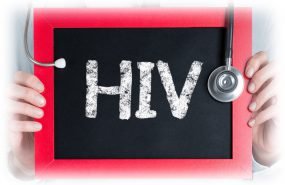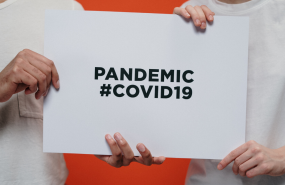Step up the fight against HIV, TB and Malaria – India Civil Society calls on the Government of India
- 21.01.2019 13:42
- Post Views: 1,289
The meeting aimed to support joint strategizing and create synergies among India civil society and regional and global communities and civil society advocates for a fully funded Global Fund leading up to the Sixth Replenishment Pledging Conference of the Global Fund to be held in October 2019 in Lyon, France. In addition, for the first time in India, community and civil society partners from HIV, TB and malaria have united their voices to strengthen their responses towards the Universal Health Coverage (UHC) agenda and increased domestic financing towards the three diseases.
India makes history by being the first country from the global south ever to host a Preparatory Meeting for the Global Fund’s tri-annual Replenishments in New Delhi on the 7-8 February 2019 and serves as an important milestone to mobilise funds aimed at accelerating AIDS, TB and malaria responses and building resilient and sustainable health systems across the world. It will also provide an opportunity to highlight India’s contribution to Sustainable Development Goals (SDGs) through broad public-private partnerships; and through the use of new tools, technologies call attention to India’s leadership in the production and supply of generic medicines and leading conversations around utilizing public health safeguards in the implementation of intellectual property rights.
India’s hosting of the Preparatory Meeting for the Global Fund’s Sixth Replenishment has been commended by the international community – including donor governments, technical agencies, and Indian, regional and global activists working on the three diseases. Aside from hosting the Preparatory Meeting, the global community is looking at the Indian government to further demonstrate leadership and commitment on supporting a fully funded Global Fund by rallying other donors including donor countries, private sector, private foundations and High Net Worth Individuals for increased pledges to the Sixth Replenishment of the Global Fund.
The recently released Investment Case summary for the Sixth Replenishment of the Global Fund calls for a minimum of US$14 billion. “The US$14 billion will help save 16 million lives, cut the mortality rate from HIV, TB and malaria in half, and build stronger health systems by 2023,” said Ms Dianne Stewart, Head, Donor Relations at the Global Fund. “The Sixth Replenishment of the Global Fund takes place at a critical moment – one that will aid the global community in stepping up the fight against the three diseases and in achieving SDG 3: ensure healthy lives and promote wellbeing for all at all ages”.
US$14 billion will merely maintain the current programming. In order to scale up and optimally respond to the three diseases, the Global Fund Advocates Network in its Get Back on Track to End the Epidemics report calls for a replenishment between US$16.8 – 18 billion. “US$14 billion is the floor and not the ceiling and represents more of a maintenance than a scaled-up response. We need to give the Global Fund which is a unique and powerful mechanism in the fight against the three diseases the ability to do more and to get back on track. This means the need for increased political commitment and resources from all donors to go above and beyond the US$14 billion ask,” said Ms Maurine Murenga, Communities Delegation Board Member to the Global Fund.
Ms Daxa Patel, President of National Coalition of People Living with HIV in India, speaking at the press conference said that “India needs to set the momentum and leadership for the Sixth Replenishment of the Global Fund by announcing an early and increased pledge of a minimum of US$40 million from the US$20 million for the Fifth Replenishment. An increased pledge demonstrates India’s commitment and solidarity towards global health.”
India’s National Strategic Plan for HIV has a budget of US$4.715 billion for the period of 2017-2022. The political commitment to end TB in India is reflected in substantive increases in domestic budget support to the TB program (excluding loans), which has increased from US$62 million in FY 2015 to US$325 million in FY 2018. India’s National Strategic Plan for Malaria states that India will require $1.518 billion for the period between 2017-2022.
Despite these investments and commitments, India is still not on track. Public spending on health is still around 1.2% of GDP, which is significantly lower than peers of similar income levels. With such low priority accorded to health by the government, the Indian population has one of the lowest levels of financial risk protection for health in the region with the majority paying out-of-pocket for healthcare.
“The Government of India needs to take progressive steps immediately and not wait to increase health expenditures from 1.2% to 2.5% of its GDP by 2025 and increase state sector health spending to over 8% of the budget by 2020 to reach the targets set by the National Health Policy adopted in 2017 and should take concrete measures to fully fund the India HIV, TB and Malaria response” said Dr Sonal Mehta, Chief Executive of the India HIV/AIDS Alliance.
For more information
Ms Anita Bagchi at abagchi@allianceindia.org, Communication Consultant, India HIV/AIDS Alliance
Mr Niluka Perera at niluka.perera@gfanasiapacific.org, Communications and Coordination Officer, Global Fund Advocates Network Asia-Pacific (GFAN AP)
*Members of the India Working Group are: Ms Abhina Aher, Associate Director: Sexuality, Gender & Rights, India HIV/AIDS Alliance; Ms Blessina Kumar, CEO, Global Coalition of TB Activists; Ms Daxa Patel, President, National Coalition of People Living with HIV in India; Dr Shampa Nag, consultant, Caritas India; Dr Sonal Mehta, Chief Executive, India HIV/AIDS Alliance; Ms. Rachel Ong, Regional Coordinator, Global Fund Advocates Network Asia-Pacific; and Mr. Masaki Inaba, Programme Director for Global Health, Africa Japan Forum
To download the PDF-version of the Press-release
Related News
Roundtable organized by Global Fund
On 26 May (Russian) and 27 May (English) at 10.00 am (Geneva time) Developing Country NGO delegation of the Global Fund Board and the Global Fund Secretariat are organizing the Roundtable “Responses to HIV and TB in times of COVID-19 – strengthening engagement with civil society and communities in Eastern Europe and Central Asia (EECA)” […] Read moreCOVID-19 lessons: what can make the HIV programs in the EECA countries more sustainable? (LIVE discussion)
On May 5, 2020, from 11:00 a.m. to 1:00 p.m. EST (UTC+3), Alliance for Public Health will conduct a special LIVE discussion will be held on opportunities to improve the sustainability of national HIV programs that have emerged in connection with COVID-19. Post Views: 934 Read moreCOVID-related Funding Opportunities for Civil Society Working on HIV, TB, Malaria, Gender and Human Rights
We would like to share with you the information about few COVID-related Funding Opportunities available for Civil Society Working on HIV, TB, Malaria, Gender and Human Rights in EECA. Post Views: 3,246 Read moreServices for migrants and refugees from Ukraine – HIV/TB care with a focus on key populations
Due to the increasing flows of refugees from Ukraine because of Russia’s invasion of Ukraine, the EECA Regional Platform created a spreadsheet to fill contacts details of face-to-face and online services for refugees and migrants (with a focus on HIV/TB care and key population groups).
Regional Platform – EECA
This web-resource is a part of new regional communication and coordination project “Regional Civil Society and Community Support, Coordination and Communication Platform - EECA”, implemented by Eurasian Harm Reduction Association (EHRA).
Tags
See also
-
EECA’s Regional Platform monthly Newsletter #21, February 2026 26.02.2026 11:56
-
Webinar: Results of the 54th meeting of the Global Fund‘s Board 23.02.2026 10:24
-
EECA’s Regional Platform monthly Newsletter #20, January 2026 27.01.2026 12:58
-
Global Fund Eligibility List 2026 27.01.2026 11:19







